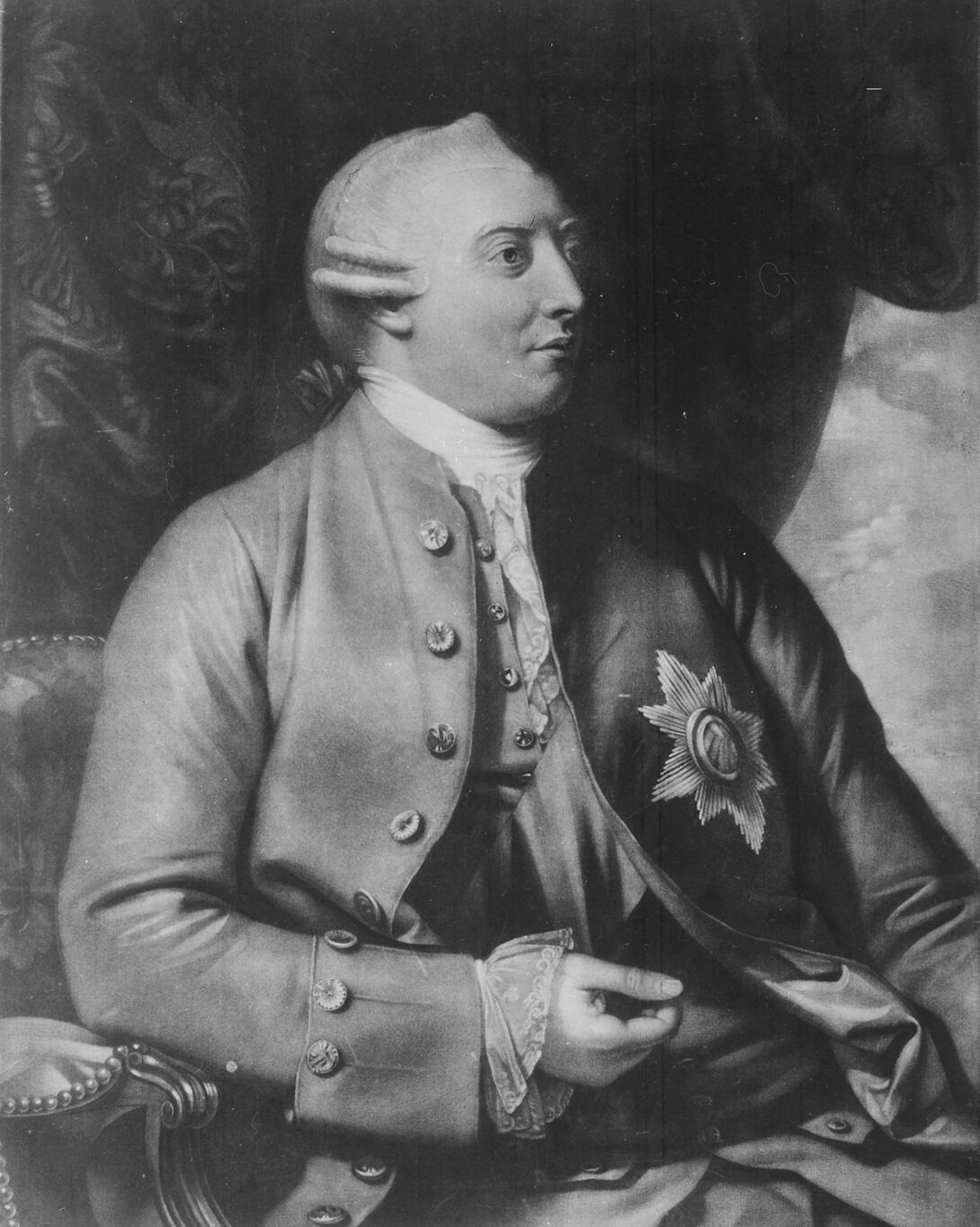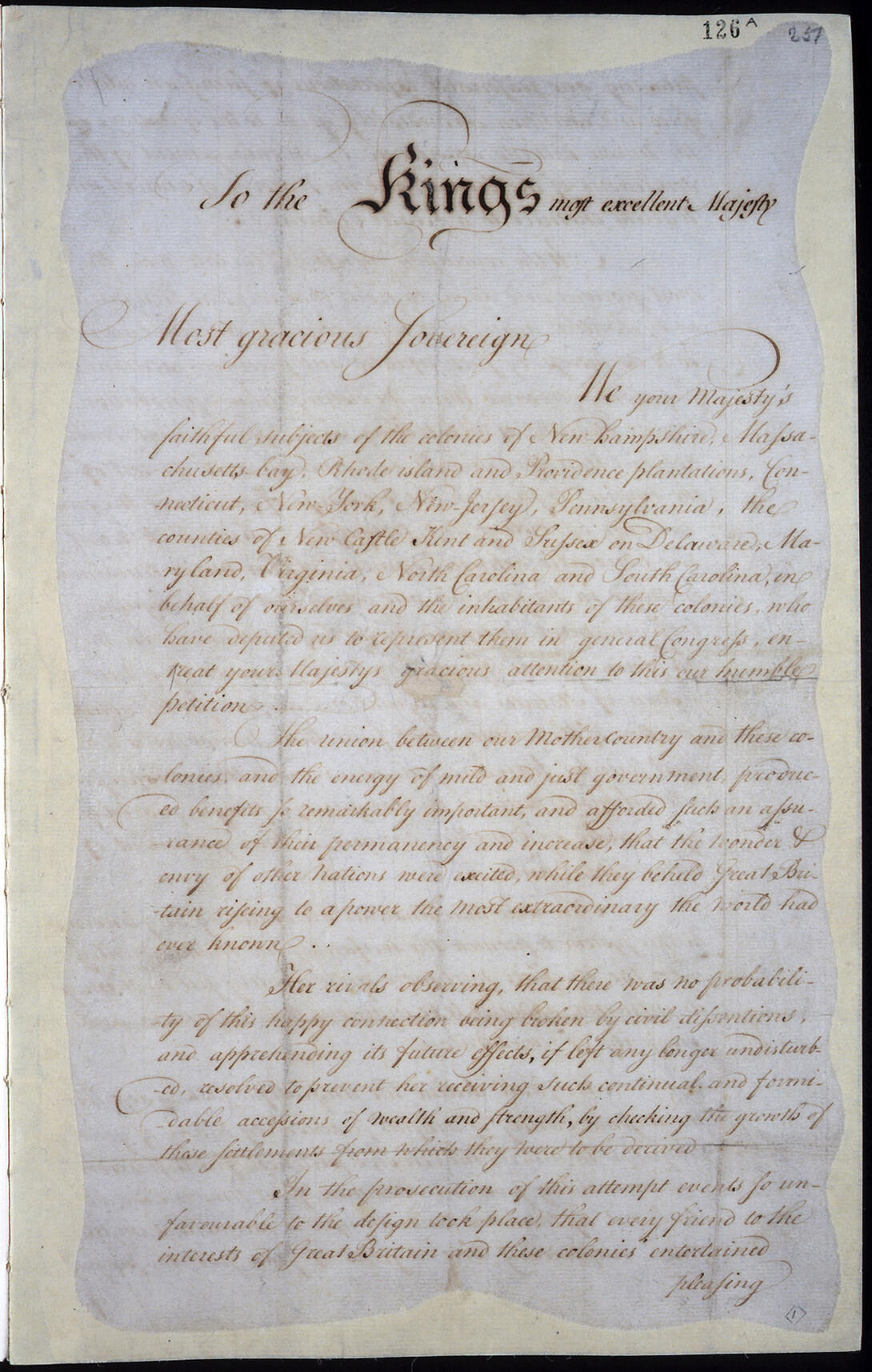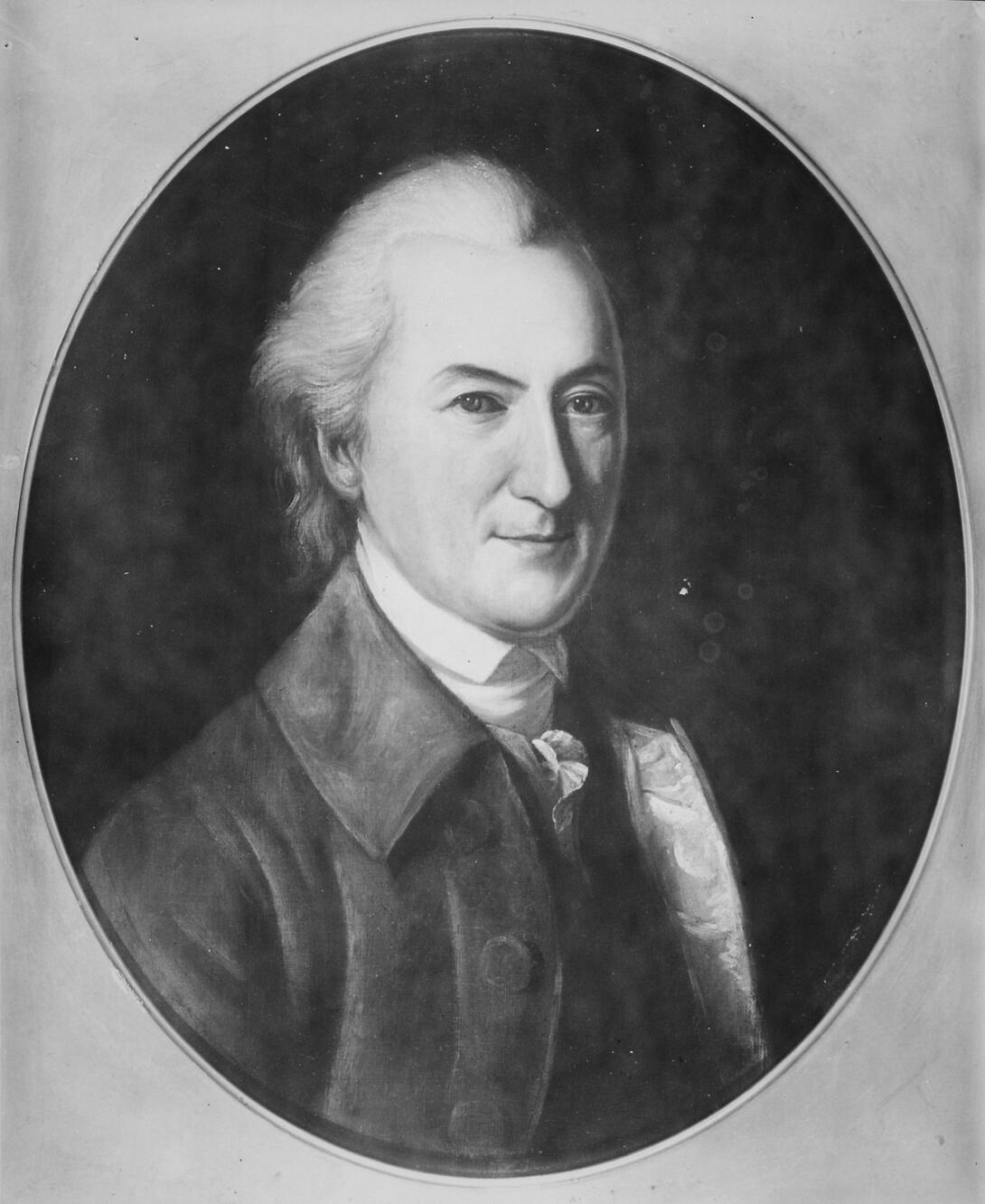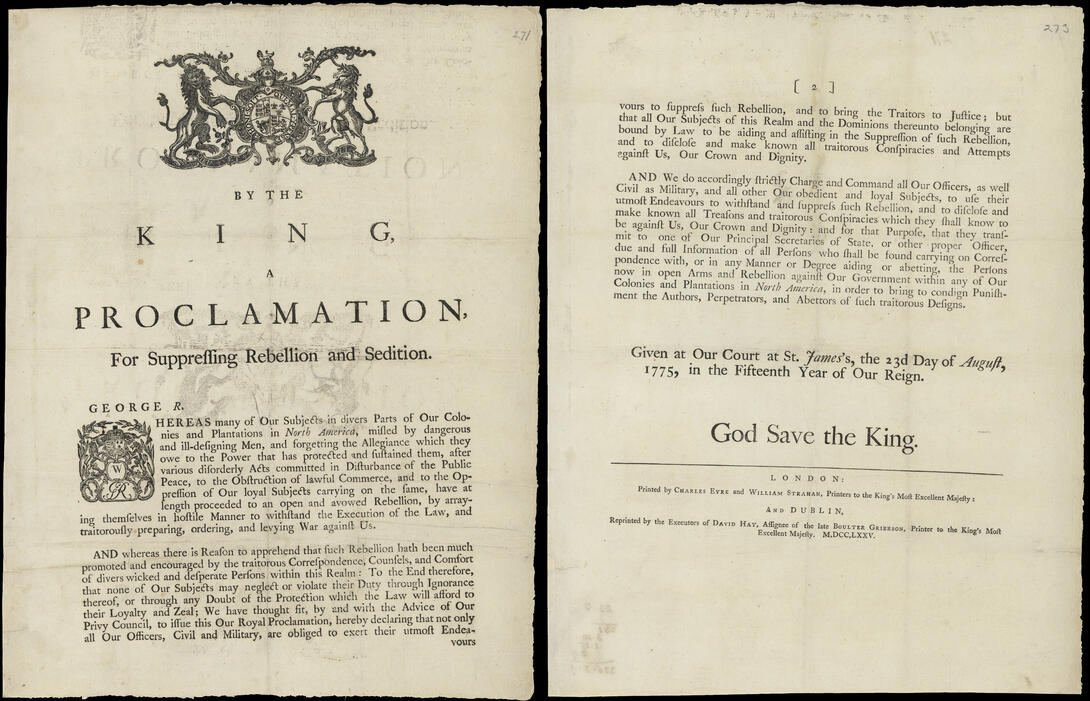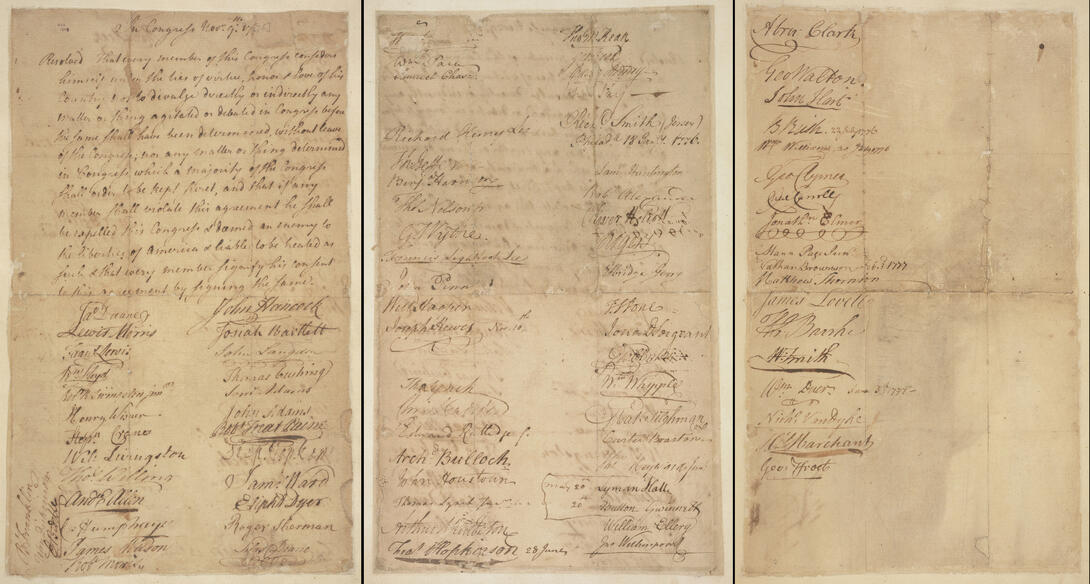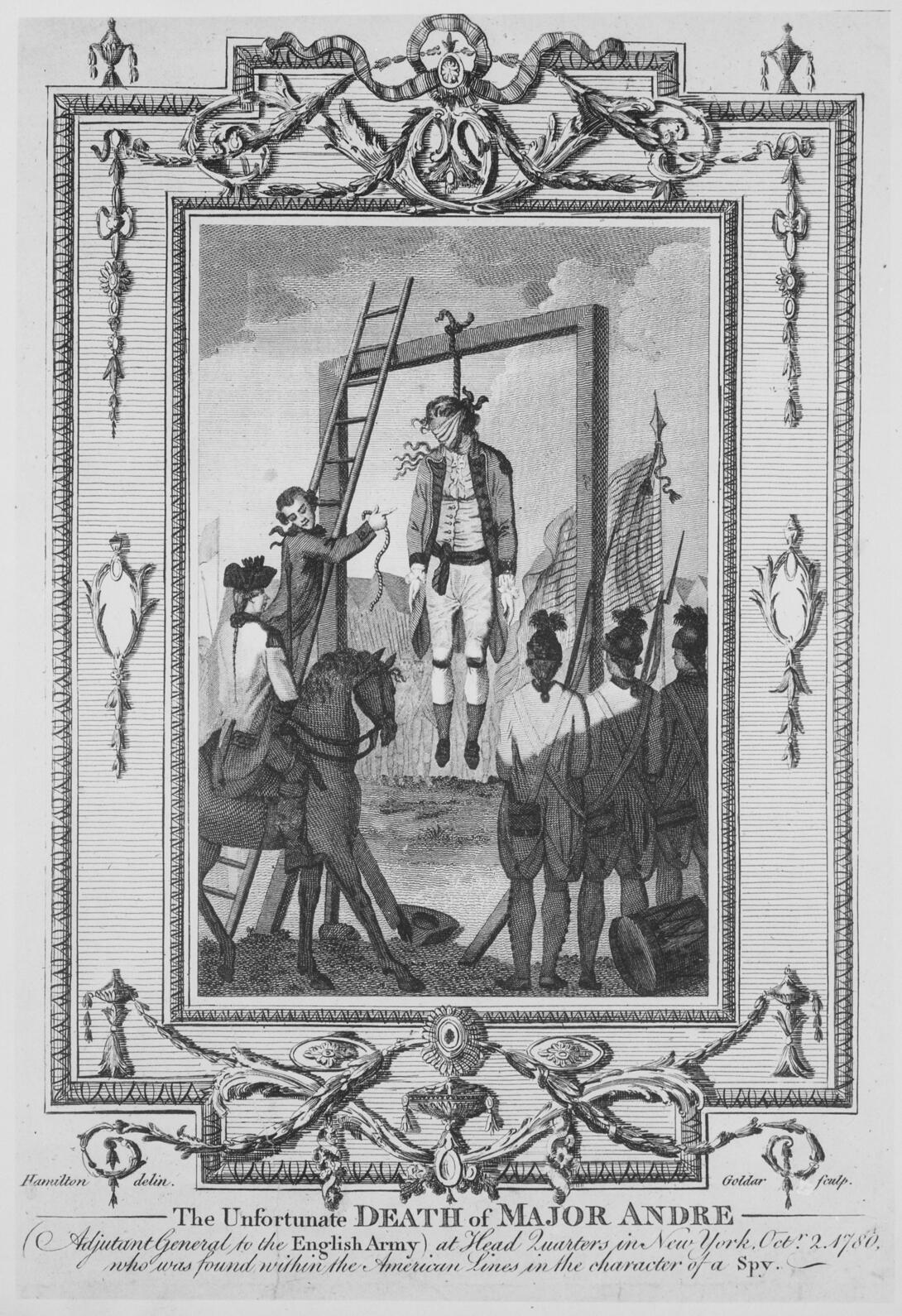The Olive Branch Petition
Failure of Congress’ “Olive Branch” to King George III helped grow support for independence.
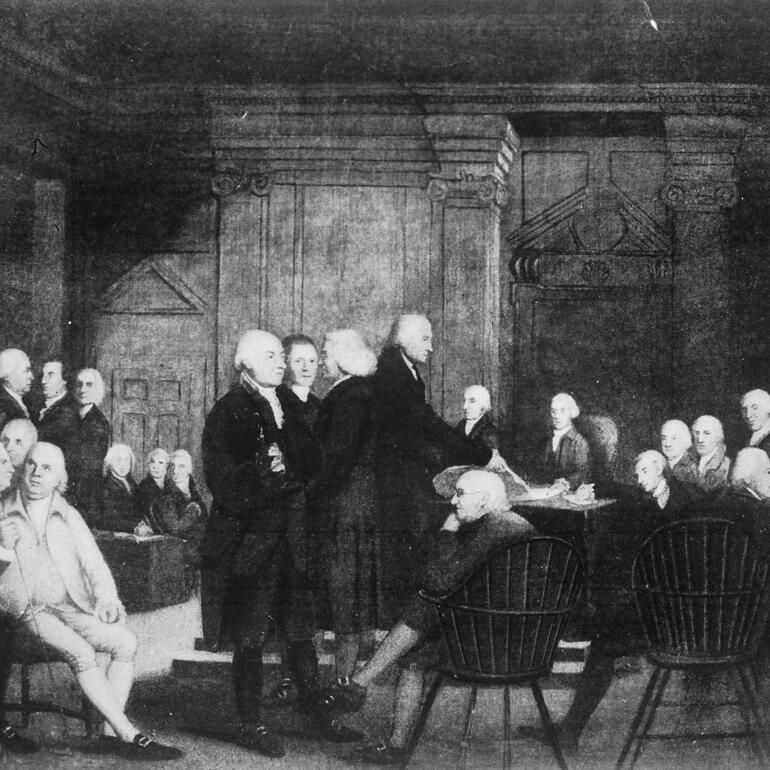
-
Following the outbreak of the Revolutionary War in 1775, the Second Continental Congress agreed on the necessity of fighting the British, but delegates differed over the political objectives of the conflict. Some wished to remain in the British Empire. Others saw a break with Great Britain as unavoidable, but acknowledged that most colonists did not favor independence at the time. Recognizing that unity was essential to the American cause, both factions ultimately agreed to a strategy of appealing to King George III for reconciliation.
In return, the King proclaimed every rebel a traitor. Great Britain's refusal to negotiate a peace ultimately strengthened colonial support for independence.
Photograph of Mezzotint of King George III, ca. 1778 by Edward Fisher, after Benjamin West. Records of Commissions of the Legislative Branch...Read more
Photograph of Mezzotint of King George III, ca. 1778 by Edward Fisher, after Benjamin West. Records of Commissions of the Legislative Branch
Read less -
A year before declaring independence, the Continental Congress made a final appeal for a “happy and permanent reconciliation” in its Olive Branch Petition to King George III. Principally authored by Pennsylvania delegate John Dickinson, Congress’s support for the measure was not unanimous. Nevertheless, delegates adopted and signed the petition to maintain unity and reassure colonists who were not yet open to independence. Congress also issued a separate declaration explaining their decision to take up arms against the British.
Olive Branch Petition, page 1, July 8, 1775. Courtesy of The National Archives, UK (CO 5/76 F.256)
-
Pennsylvania delegate John Dickinson was the primary author of the Olive Branch Petition.
John Dickinson. Records of Commissions of the Legislative Branch
-
King George III refused to formally receive or respond to the Continental Congress’ Olive Branch Petition. Rather, his August 23, 1775, proclamation declaring the American colonies to be in “open and avowed Rebellion" effectively answered the delegates’ plea for reconciliation. In October 1775, the King declared in a speech before Parliament that the colonies were waging war to establish American independence. King George III’s actions not only ended hopes for a peaceful resolution to the growing conflict, it led many loyal colonists to rethink their allegiance to their sovereign.
“By the King a Proclamation For Suppressing Rebellion and Sedition,” August 23, 1775. Records of the Continental and Confederation Congresse...Read more
“By the King a Proclamation For Suppressing Rebellion and Sedition,” August 23, 1775. Records of the Continental and Confederation Congresses and the Constitutional Convention
Read less -
The Revolutionary War posed considerable risks for the Second Continental Congress, which had resolved to keep its proceedings secret upon convening in May 1775. King George III’s denouncement of their activities as traitorous led Congress to take more stringent measures. On November 9, 1775, it adopted a resolution that required delegates to sign an Agreement of Secrecy. Violators were threatened with expulsion from Congress as “an enemy to the liberties of America.” New delegates arriving in Congress continued to sign the agreement through June 1777.
Agreement of Secrecy, November 9, 1775. Records of the Continental and Confederation Congresses and the Constitutional Convention
-
Escalating tensions with Great Britain raised the risks for rebel leaders.
The Unfortunate Death of Major Andre (Adjutant General to the English Army) at Head Quarters in New York, October 2. 1780, who was found within the American Lines in t...Read more
The Unfortunate Death of Major Andre (Adjutant General to the English Army) at Head Quarters in New York, October 2. 1780, who was found within the American Lines in the character of a Spy. Copy of engraving by John Goldar after Hamilton, 1783. Records of the Office of War Information
Read less -
The Olive Branch Petition is part six of Road to Revolution, a series of displays highlighting National Archives records that document the journey from colonial resistance to American independence and the diverse experiences of the nation's founding generation.
Road to Revolution is made possible in part by the National Archives Foundation, through the generous support of Comcast Corporation, Microsoft, and Procter & Gamble.






